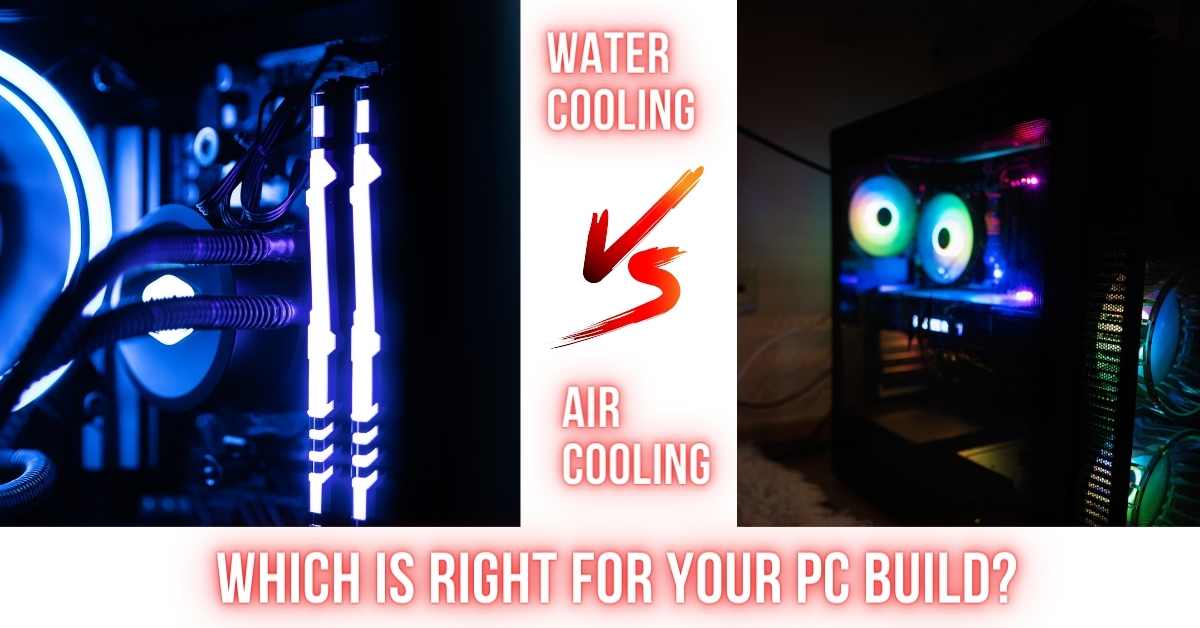
Introduction
When it comes to building a high-performance PC, one of the most crucial decisions you’ll make is how to keep your components cool. The two most common methods for cooling your PC are air cooling and water cooling. Each has its own set of advantages and disadvantages, and choosing the right one for your build can have a significant impact on your system’s performance and longevity. In this blog post, we’ll explore the differences between water cooling and air cooling, helping you make an informed decision for your next PC build.
Air Cooling: A Trusted Classic
Air cooling is the most common and traditional method of cooling a PC. It relies on heatsinks and fans to dissipate heat generated by your CPU and GPU. Here are some of the key points to consider when it comes to air cooling:
- Cost-Effective: Air coolers are generally more affordable than water cooling solutions, making them an attractive option for budget-conscious builders.
- Reliability: Air cooling systems have fewer components that can fail, making them more reliable over the long term.
- Easy Installation: Installing an air cooler is relatively straightforward, and most compatible coolers come with clear instructions.
- Low Maintenance: Air coolers require minimal maintenance, typically involving occasional dust cleaning to ensure optimal performance.
- No Risk of Leaks: Unlike water cooling, air cooling systems have no risk of leaks, which can potentially damage your PC components.
Water Cooling: Ultimate Performance and Aesthetics
Water cooling, also known as liquid cooling, offers the best cooling performance and can be a visual treat for PC enthusiasts. It involves a closed-loop or custom loop system where a coolant is circulated through a series of tubes and blocks to dissipate heat. Here are some considerations for water cooling:
- Superior Cooling Performance: Water cooling systems are highly effective at cooling components, allowing for more aggressive overclocking and prolonged hardware lifespan.
- Aesthetic Appeal: Water cooling systems can look stunning, with colorful coolant and RGB lighting enhancing the overall aesthetic of your build.
- Quiet Operation: Water cooling solutions tend to be quieter than their air-cooled counterparts, as they don’t rely on noisy fans.
- Customization: Enthusiasts can design their custom loops with different components and coolants for a unique look and performance profile.
- Space and Weight: Water cooling systems can be bulkier and heavier than air coolers, so make sure your case can accommodate them.
Choosing the Right Cooling Solution
The decision between air cooling and water cooling ultimately depends on your specific needs and preferences. Here are some factors to consider when making your choice:
- Budget: If you’re on a tight budget, air cooling is the more cost-effective choice.
- Performance: If you demand the best performance and plan to overclock your CPU and GPU, water cooling is the way to go.
- Aesthetics: If you’re looking for a visually appealing and customizable system, water cooling can be a real showstopper.
- Case Compatibility: Ensure that your PC case can accommodate the cooling solution you choose.
- Maintenance: Consider how much time and effort you’re willing to invest in maintaining your cooling system.
- Noise Tolerance: If you value a quieter system, water cooling tends to be quieter due to the absence of noisy fans.
Conclusion
The choice between water cooling and air cooling for your PC build ultimately comes down to your specific requirements and personal preferences. Air cooling is reliable, cost-effective, and easy to install, while water cooling offers superior performance and aesthetics. If you’re willing to invest the time and money in a water cooling solution and want the best possible performance, it can be a worthwhile choice. On the other hand, air cooling is a solid, practical choice for most PC builders, providing adequate cooling and reliability without the added complexity.
Ultimately, the decision is yours, and by considering your needs, budget, and the visual appeal you desire for your PC, you can make the right choice to keep your system cool and performing at its best.
